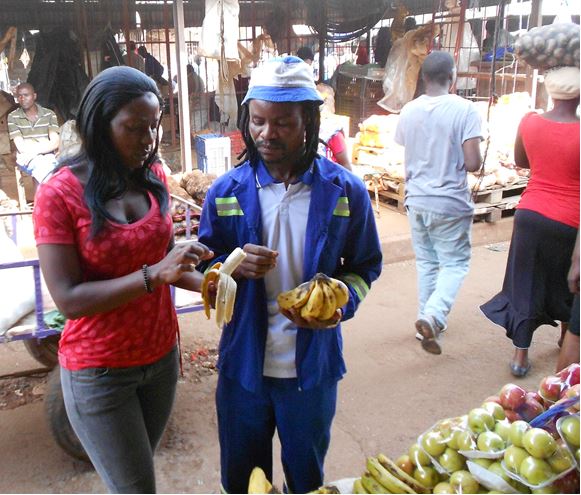In a world increasingly driven by ICTs, farmers should not be satisfied with feedback from supermarkets and contract companies. Nothing stops them from speaking directly to consumers who are the final end users of what they produce. A majority of consumers particularly those in urban markets have more information than producers. That means farmers have to spend time and resources trying to understand how these dynamic consumers make decisions and their food choices. If this does not happen, producers in developing countries will perpetually fail to accurately meet demand.

It is becoming natural for consumers to turn to their mobile phones when comparing prices and the diversity of commodities. The traditional commercial approach based on mass-media advertising and relatively uninformed consumers is falling short. Producers have to engage with consumers when they are looking for information about what to buy and why. This means connecting with consumers when they are looking for answers rather than providing information just in case it may be used.
The engagement between farmers and consumers should feel natural and personal. That may mean providing information that facilitates an important choice to be made and supporting the execution of that choice through empathizing. For instance, some consumers may be looking for particular agricultural commodities to support their healthy consciousness. In this case, producers must be able to articulate benefits in their commodities. If a consumer is interested in organic food, a producer should be able to explain organic benefits in ways that make sense to consumers. This practice is common in informal agriculture markets where traders go to the extent of understanding their consumer needs at a granular level. Embracing a full- fledged commercial approach means farmers have to allocate marketing issues a significant part of their time and resources.
Knowledge challenges that have to be overcome
A strong consumer focus goes with a different approach to knowledge. While it may seem that provision of inputs and a market for commodities are critical ingredients in African agriculture, some of the most critical knowledge issues revolve around awareness, willingness and ability. Regarding awareness, farmers and other actors who have crucial knowledge are often unaware that they have it. They are also unaware how valuable their knowledge is as well as who needs to know it.
Most importantly, farmers and rural communities do not know how to go about sharing their knowledge. That is why they always use field days and agricultural shows which, unfortunately, have become over-used in the absence of efforts to assess their effectiveness. On the other hand, people who need the knowledge that is with farmers are often unaware that they lack it, unaware that they need it, unaware that it exists already and are unaware of who holds that knowledge. As a result, they would not know how to go about acquiring that knowledge. That is why most development organisations end up duplicating their efforts instead of building on existing knowledge.
When it comes to willingness, a significant number of farmers, traders, transporters, processors and other people who have crucial knowledge are unwilling to share it. Since they seem to have been convinced that knowledge is power, they fear that, besides costing them time and effort, sharing knowledge may in some way disempower them. On the other hand, people who need the knowledge are unwilling to look for it. They fear that admitting a need for knowledge makes them look incompetent. For instance, most African policy makers and development workers are unwilling to look for knowledge among farmers and traders because they think they know everything.
The ability angle is the most subtle one. Farmers, traders and other actors who have crucial knowledge are unable to share it. They don’t know who to share it with, where to put it, or how to share it. Efforts to create community knowledge centres in African farming communities are designed to address this challenge. In most cases, people who need knowledge are unable to find it. They don’t know where to look, who to talk to, or how to search. Organisations and communities should try to analyse and address cultural aspects behind any unwillingness to share knowledge among agricultural actors. This action should be followed by introducing frameworks which support the ability to seek and share knowledge.
charles@knowledgetransafrica.com / charles@emkambo.co.zw / info@knowledgetransafrica.com
Website: www.emkambo.co.zw / www.knowledgetransafrica.com
eMkambo Call Centre:
0771 859000-5/ 0716 331140-5 / 0739 866 343-6
